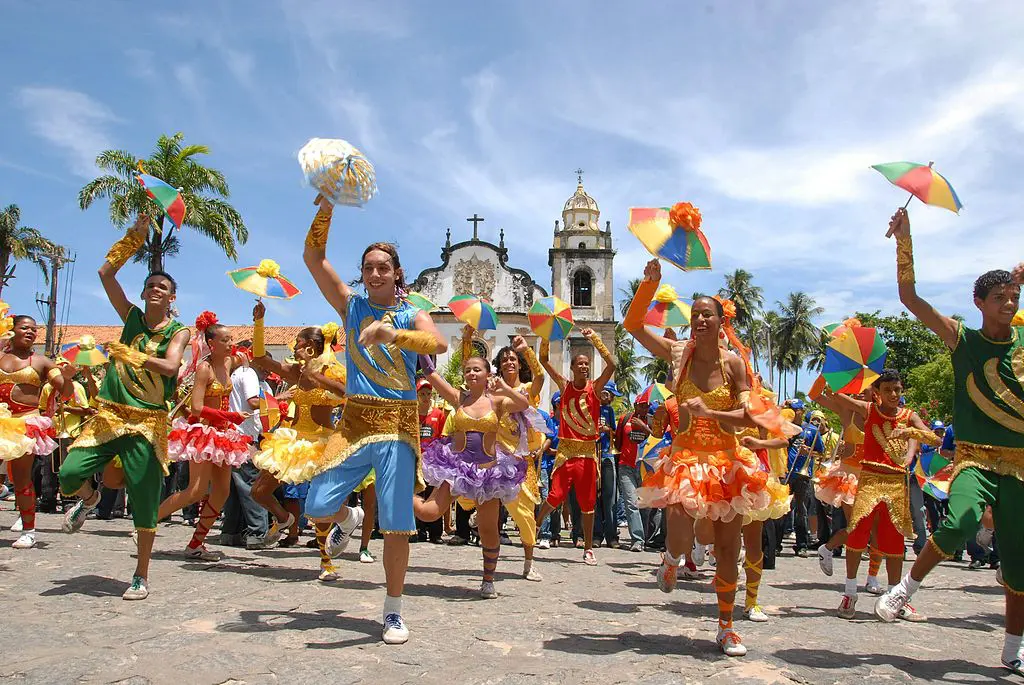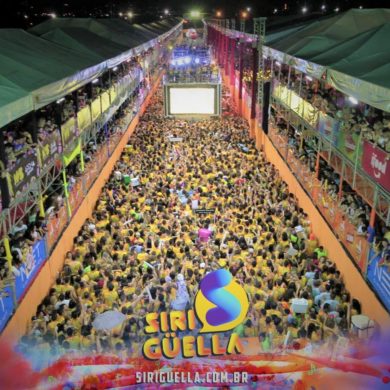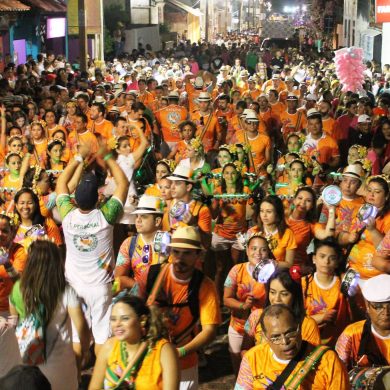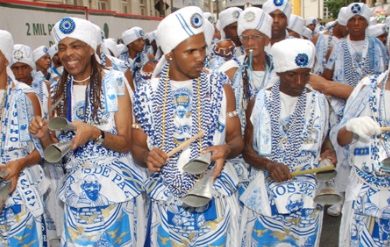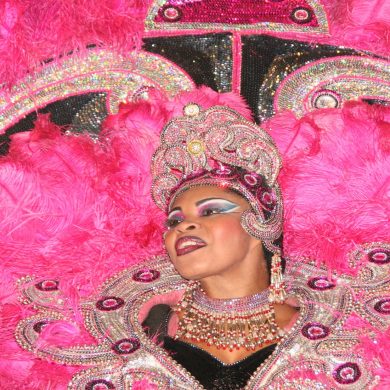Taking place before Lent, are festivities featuring
In Recife and Olinda, on the coast of Nordeste, the Brazilian carnival celebration is colorful and full of tradition!
In these ancient colonial cities, the festivities preceding Lent show both an African and Brazilian influence. Frevo demonstrations, Maracatu parades and the Silent Drum Night are essential moments.
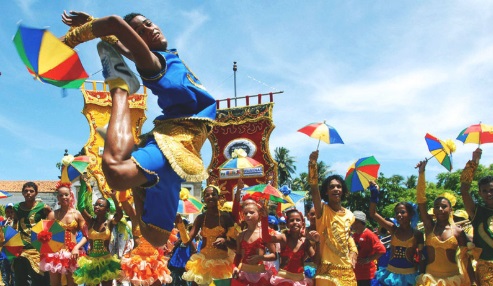
“Frevo”, a carnival between dance, martial art and political message
Emblematic of Pernambuco, frevo represents the main event of the carnivals of Recife and Olinda. Associated with the social upheavals of the late nineteenth century in the Nordeste, this energetic dance with frantic musical rhythms is an important political and cultural legacy.
Composed of over 100 extremely codified steps, it is based on many jumps and acrobatics borrowed from capoeira, the martial art created by black slaves. The use of a multicolored umbrella by the dancers (to maintain their balance) highlights the spectacular demonstrations.
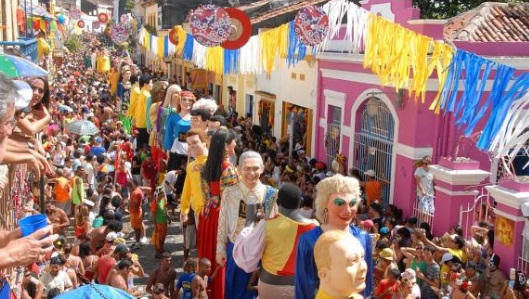
Recife and Olinda, beautiful settings for the carnival
In addition to the frevo, the 2 northern cities also offer picturesque ceremonies to accompany the entry into Lent.
In Olinda, the burning of fires by the New Virgins of Bairro Novo (transvestites) mark the opening of the carnival. Parades of Maracatu Naçao and parades of bonecos (giant puppets) weave through the alleys lined with old colonial houses with polychrome facades.
Renowned for its friendliness, Recife hosts a lot of street entertainment, organized by neighborhood blocos or spontaneously. With a parade of 1.5 million people, the celebration of Galo da Madrugada (“cock of dawn”) is one of the highlights of the festival, it is also the largest carnival group in the world.
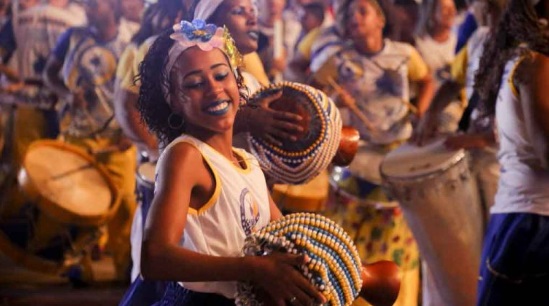
The Night of the Silent Drums, one of the most moving traditions of entry into Lent
Plunging their roots in the colonial history of Brazil, the carnivals of Olinda and Recife pay a moving homage to the victims of the slave trade during the Noite dos Tambores Silenciosos.
After a brief moment of silence at midnight, the Monday night before Mardi Gras is punctuated by the melodies of atabaques (percussion) and the rolling of the syncope drums that resonate with the nostalgia of the lost Africa of the former slaves.
